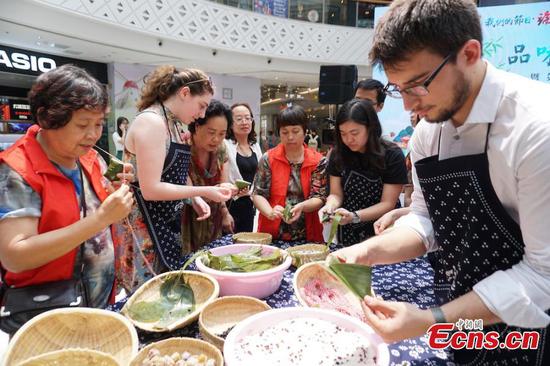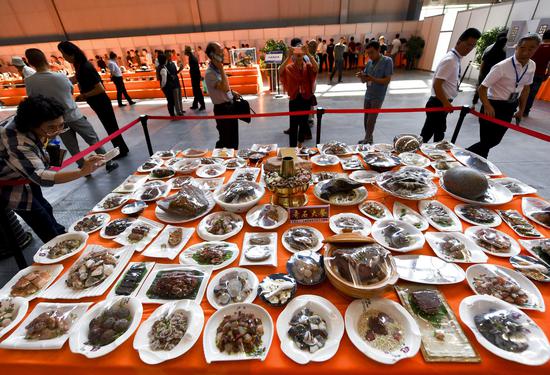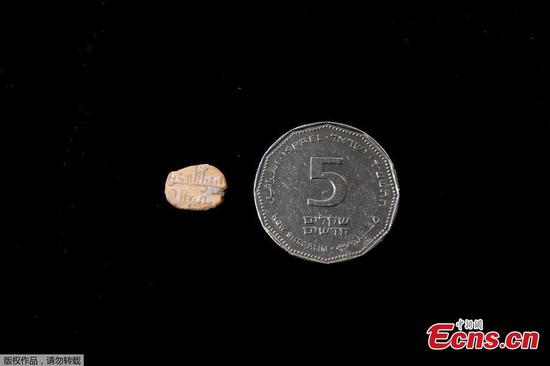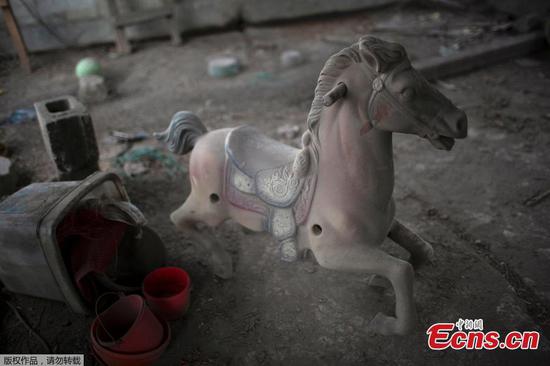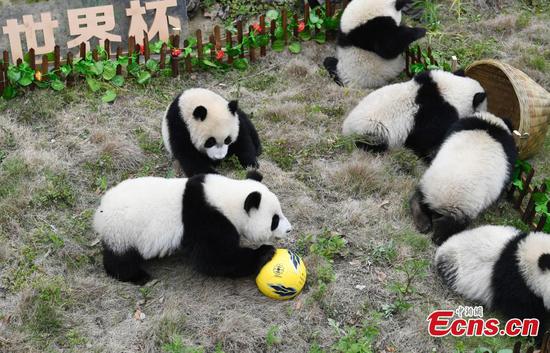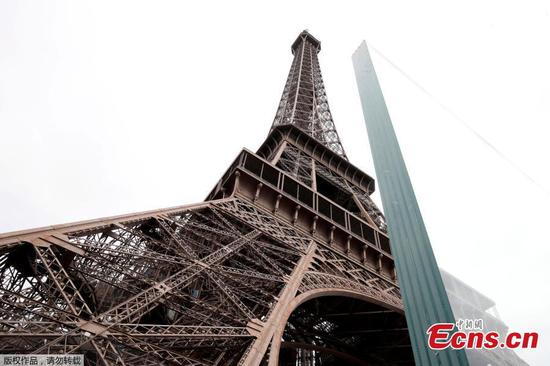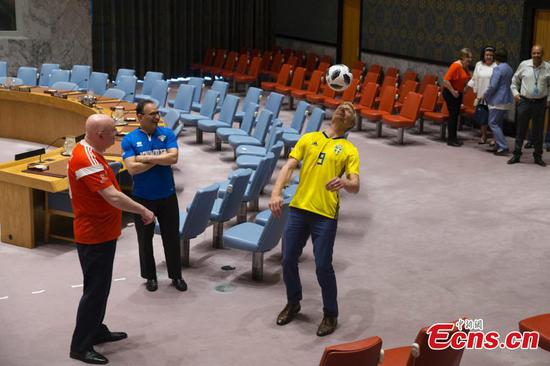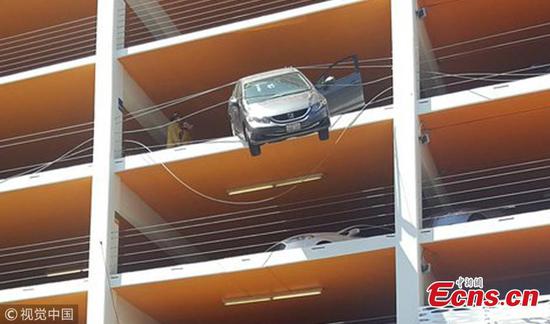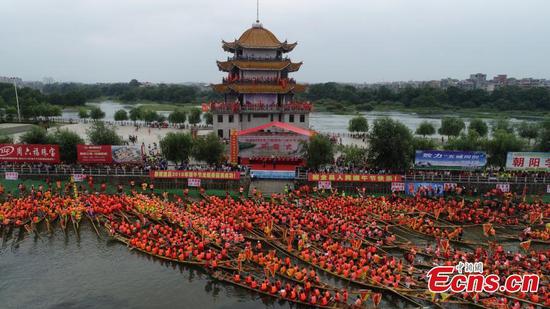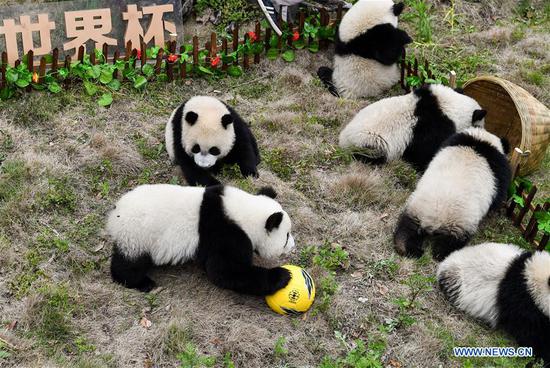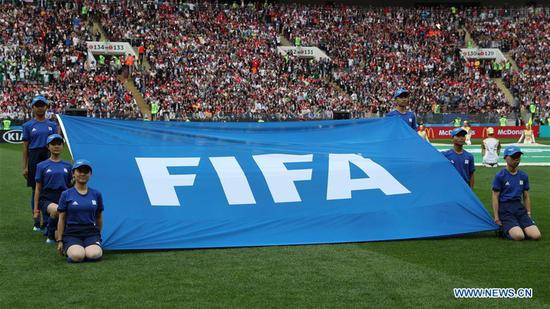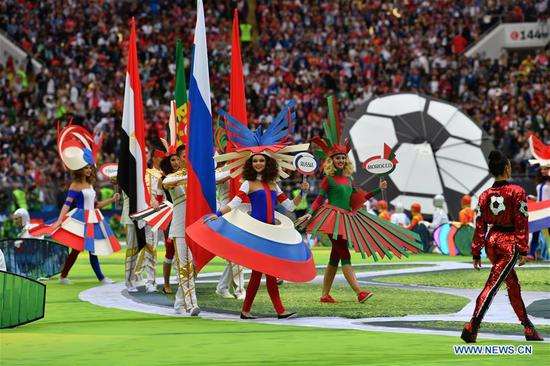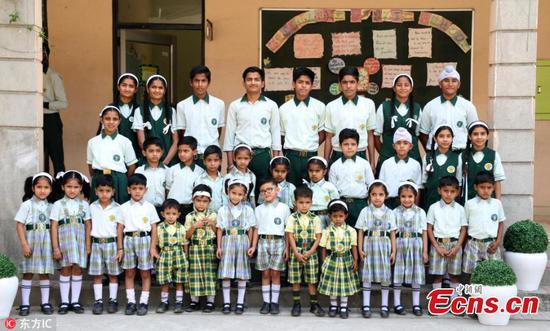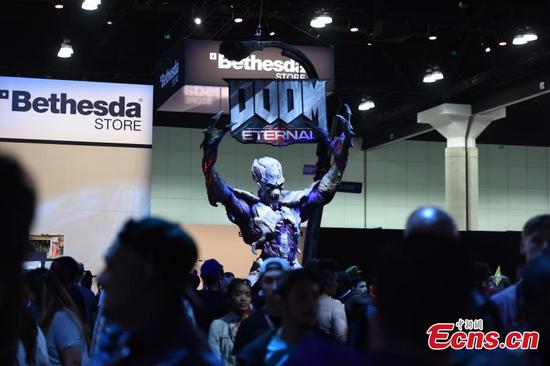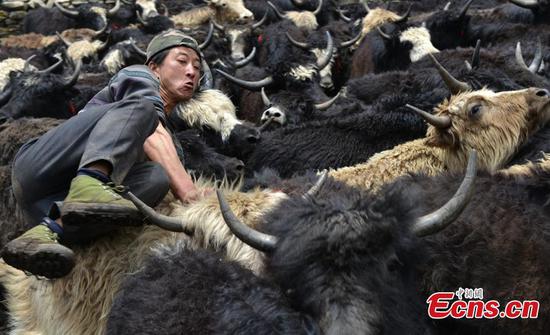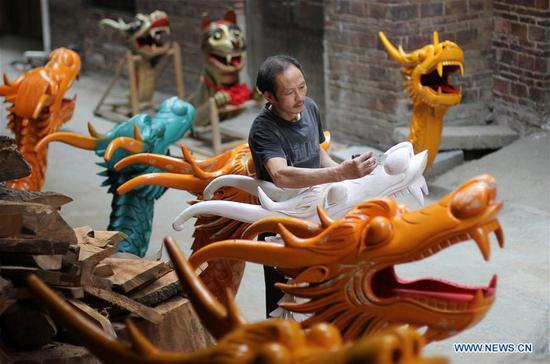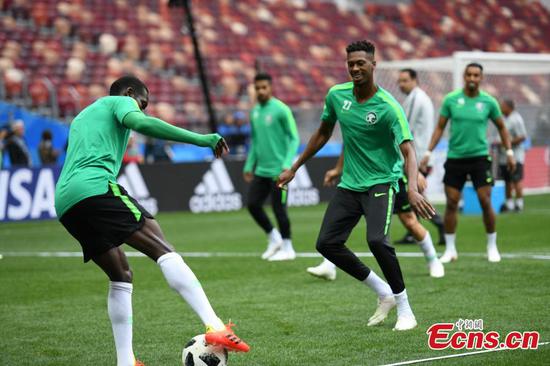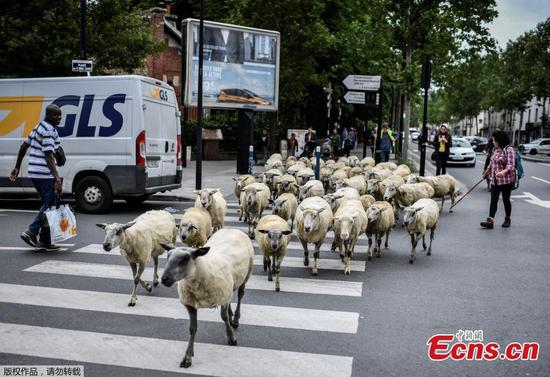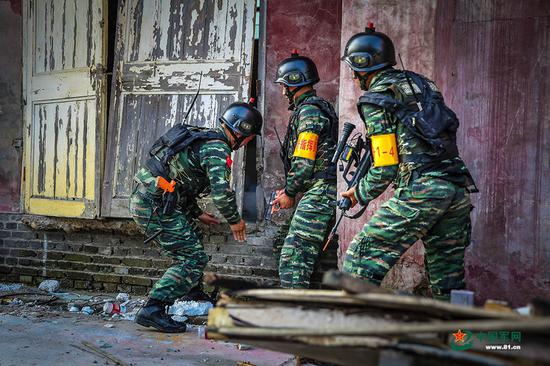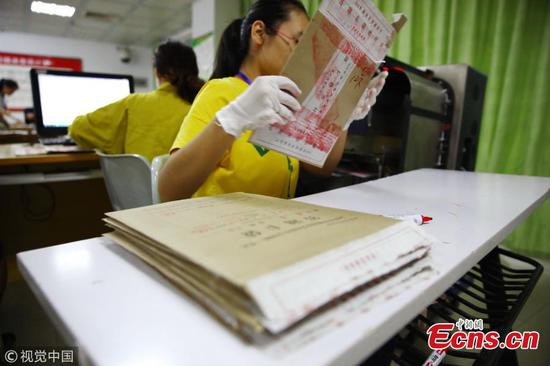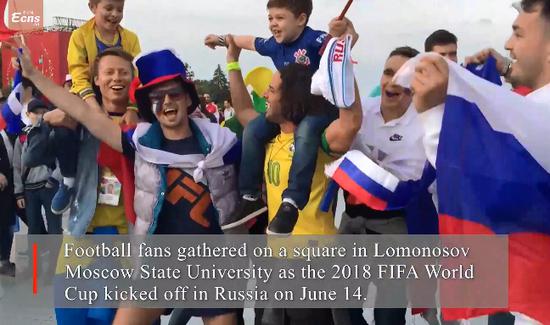Last month Chinese e-sports club Royal Never Give Up conquered the world - and now the industry as a whole here is confident it can follow suit.
The club was crowned world champion at the League of Legends Mid-Season Invitational in Paris, a milestone for the booming sector, which continues to produce stunning economic and participation figures.
China's e-sports market value reached five billion yuan ($780 million) in 2017, and that will grow to 8.48 billion yuan this year, according to the 2018 China E-sports Development Report, which was published by Tencent E-sports, Penguin Intelligence and China Electronic Athletics magazine at the Global E-sports Leaders Summit and Tencent E-sports Annual Conference on Thursday in Shanghai.
By 2020, the market value is expected to exceed 20 billion yuan. In 2017, there were 250 million Chinese gamers, with that number expected to hit 300 million by 2020.
Currently, North America (the United States and Canada) and China are the two major pillars of the global e-sports industry, accounting for 37 percent and 15 percent of the market respectively, according to the report.
However, in 2016, China's e-sports income growth rate hit 56 percent, four percent higher than the global average, and the industry has reacted accordingly.
"The scale of our investment of capital, manpower and other resources in the e-sports sector will be far higher than now in the future," said Mark Ren, chief operating officer of Tencent.
"We are aiming to make China's e-sports market more professional. We want it to be the most professional one in the world.
"However, we never want e-sports to be an elite sport for a small group of people. We want to attract more young people, and even have their parents enjoy the positive value of e-sports."
Government support is crucial to these ambitions.
"We have been paying close attention to the development of e-sports in our country," said Li Jian, a Ministry of Culture and Tourism official. "In recent years, the market scale, market value, users and tournament prize money of Chinese e-sports have all been skyrocketing, which have attracted the attention of the government and other interested parties."
The fast-developing market, however, is also facing a number of challenges.
"Many local governments have different preferential policies, but there are no unified plans to support e-sports' development," said Li. "Also the industrial chain of our country's e-sports is incomplete and the long-term profit model is immature. More importantly, the industry needs to be properly regulated."
Others fear e-sports could be a victim of its own success.
"The rising prize money could be a problem," said Wei Jizhong, the Olympic Council of Asia honorary president who successfully pushed for e-sports' inclusion in the forthcoming Asian Games.
"If the prize money is too high, the whole sport could become too profit-driven which wouldn't be good news for its healthy development.
"You could have a situation where there are only a very small number of players at the top.
"E-sports could also encounter problems like doping, because tournaments are so intense and require players to have excellent concentration and physical endurance."
Learning curve
E-sports is already endeavoring to learn, therefore, from traditional sport leagues, with the introduction of a home-and-away system for clubs the latest example of the crossover.
LPL, the pro competition for League of Legends (LOL) in China, is in the process of selecting home cities for its clubs.
Last month, the local government of Xi'an, the capital of Shaanxi province, held an elaborate ceremony to welcome the arrival of Team WE, which reached the semifinal of 2017 LOL World Championship. The city also offers e-sports clubs and companies many preferential policies.
"We gained the full support of many cities, for example Team We and Xi'an," said Joses Zhu, a senior manager of Tencent Interactive Entertainment Group.
"Now, if there are matches held in those home cities, the seat occupancy rate can easily reach 90 percent and the number is usually 100 percent in Chengdu, Sichuan province, which is home to the OMG club.
"Just like the NBA, when you speak of Los Angeles, people think of the Lakers. We want the same. We want e-sports to be the calling card of a city."
Let the Games begin
The introduction of e-sports to the Asian Games as a demonstration event is another milestone for the industry in China, especially considering three of the six games that will be contested are owned by Chinese tech giant Tencent.
Ahead of the Games, which take place in Indonesia from Aug 18-Sept 2, three representatives of China's newly formed national e-sports squad, including Jian Zihao, aka Uzi, one of the world's best LOL players, participated in an oath ceremony at the Global E-sports Leaders Summit on Thursday.
"We're trying to make e-sports an official medal sport in the 2022 Asian Games," said Olympic official Wei. "E-sports is a trend that is very popular among young people, so we can never cut the connection with its young fans and players."










